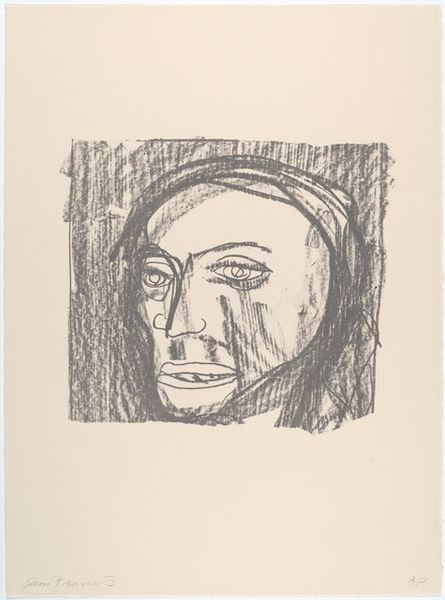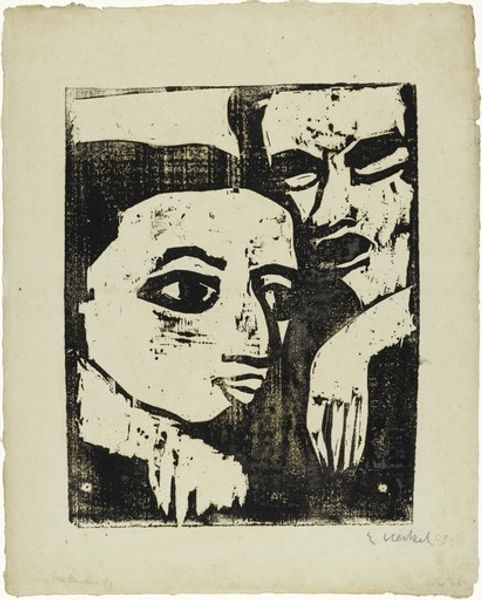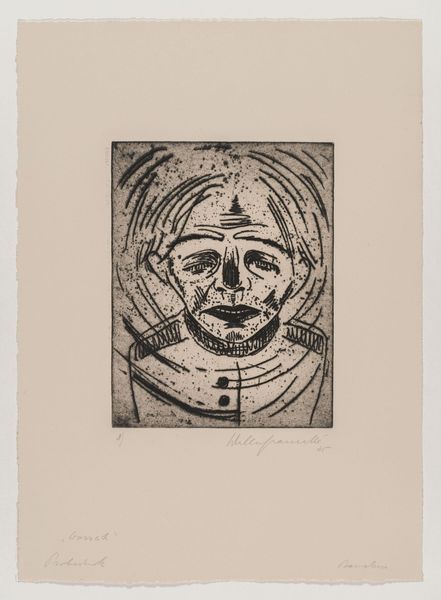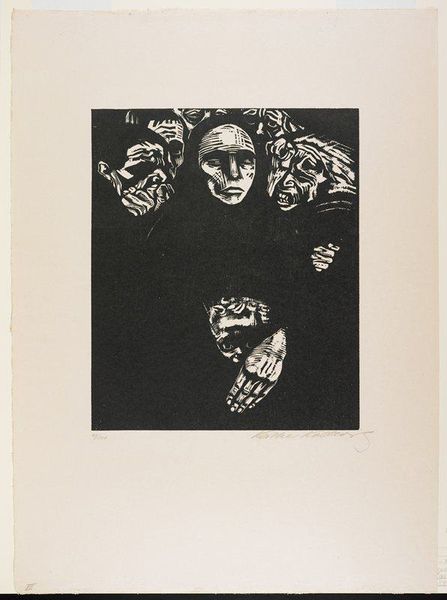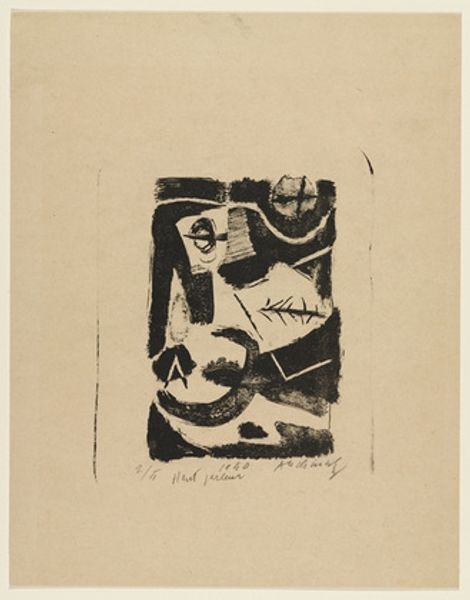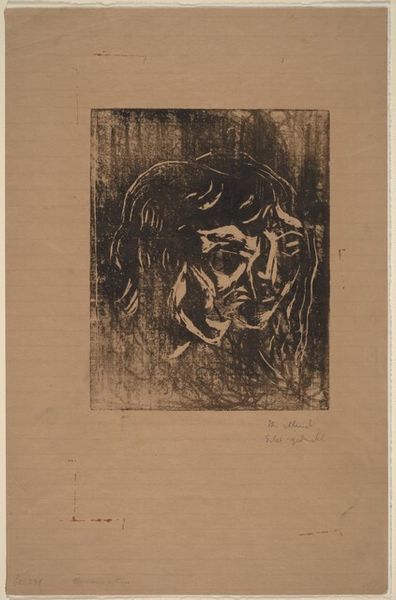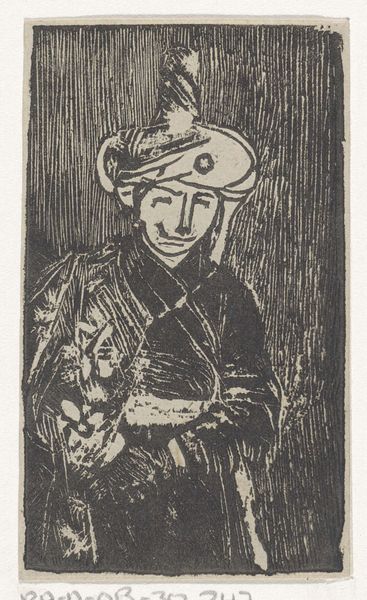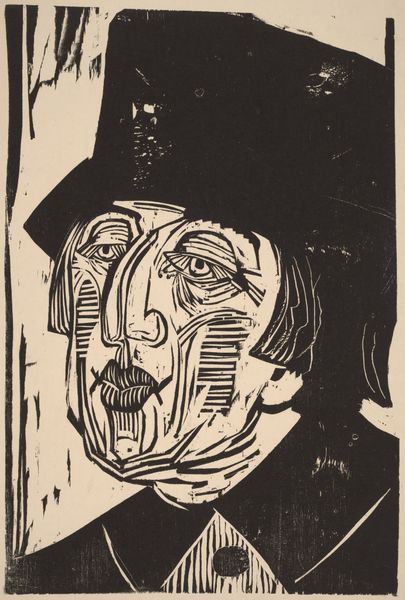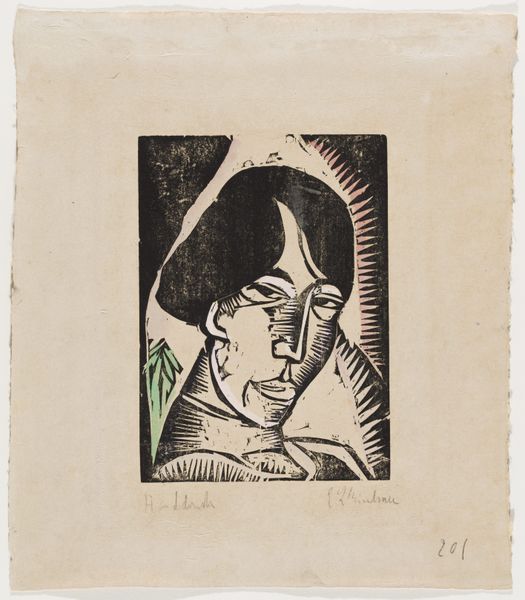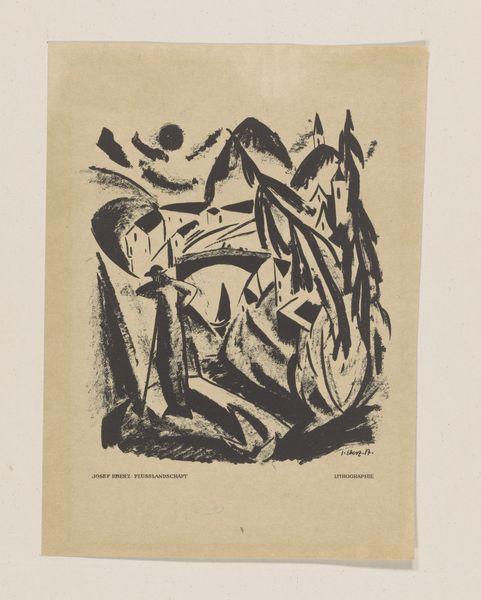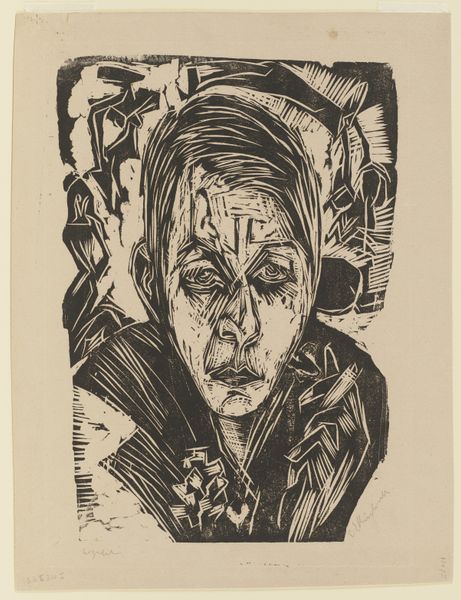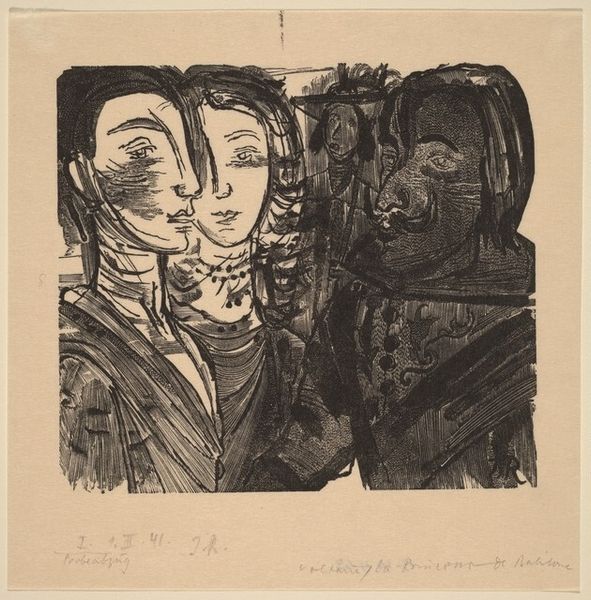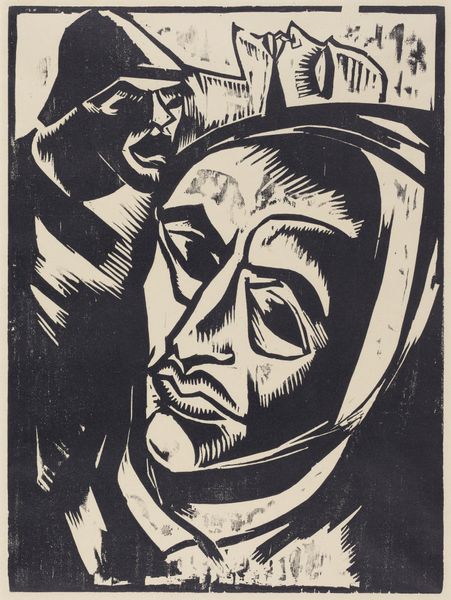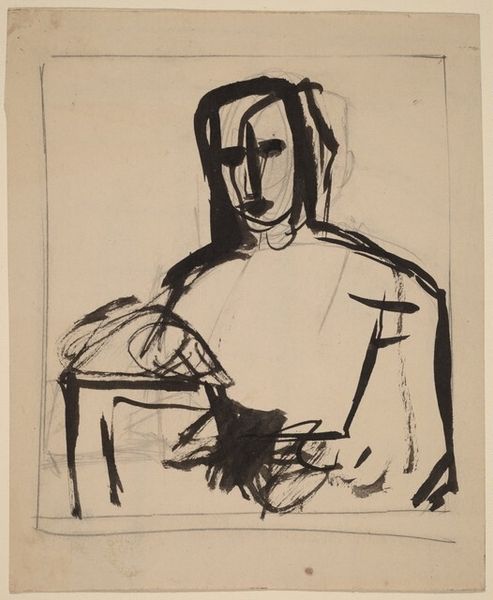
drawing, print, woodcut
#
portrait
#
drawing
#
self-portrait
#
narrative-art
# print
#
caricature
#
caricature
#
expressionism
#
woodcut
#
portrait drawing
#
history-painting
Dimensions: 15 3/4 x 11 5/8 in. (40.01 x 29.53 cm) (image)
Copyright: No Copyright - United States
Editor: Max Pechstein's "Wounded Soldier," a woodcut from 1917, feels incredibly raw. The stark contrast and almost violent carving style add to this intense sense of pain and suffering. It’s not just a portrait; it's an emotional scream. What exactly speaks to you when you look at it? Curator: Oh, the scream, precisely! It’s etched right into the wood, isn't it? I think Pechstein, caught in the First World War storm himself, wasn't just depicting a soldier but dissecting the very soul ravaged by conflict. The angular, almost brutal, cuts? That's the shattering of ideals, the ripping apart of innocence. Notice how the second figure lurking behind him – is it Death? Or perhaps just the ghost of who he used to be? It gives me shivers just thinking about the experience of war in an utterly inhuman system... doesn't it evoke a sort of primal fear? Editor: Absolutely. That looming figure definitely adds to the unsettling vibe. The high-contrast starkness seems very intentional to create drama. Curator: Intention and agony intertwined. Expressionism was all about gut-level truths, wouldn't you agree? Ditching pretty aesthetics for honest, often ugly, emotion. It makes you wonder what ghosts Pechstein was battling himself, doesn't it? This wasn't just observed; it was lived. Editor: It's true, you can feel that raw emotion just pouring out of the piece. This discussion has really given me a new appreciation for the intention of Expressionism as well as this woodcut. Curator: And for me, a fresh sting of the eternal wound war leaves, presented with such stark beauty, even now. Art is a gateway to discussing what pains and scares us the most.
Comments
No comments
Be the first to comment and join the conversation on the ultimate creative platform.
